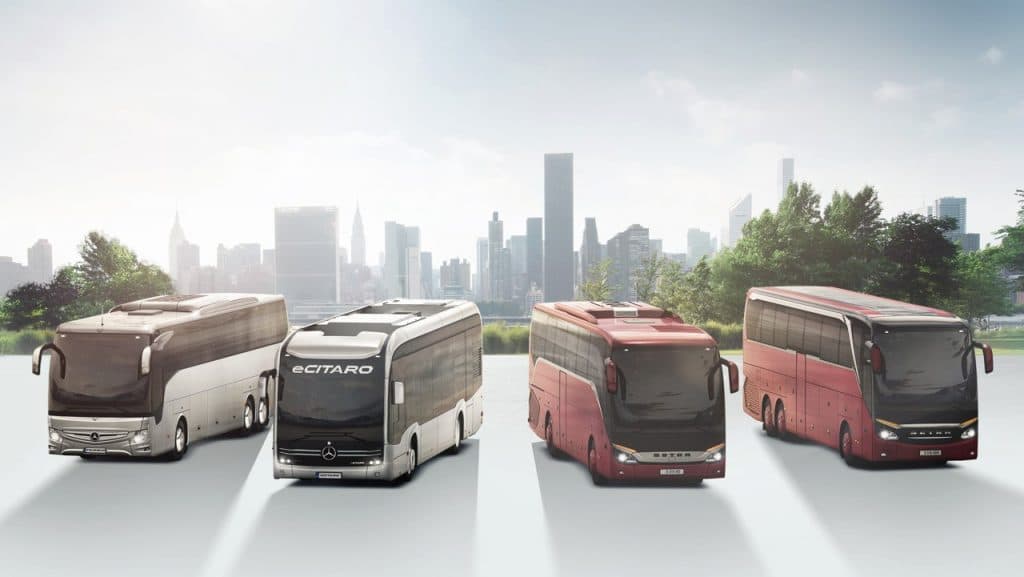In its fight against Covid-19 and for the protection of bus occupants, Daimler Buses is relying on a high fresh air content, a fast exchange of air and anti-viral high-performance particle filters in its vehicles. The effectiveness of these protective measures has also been confirmed by the research report issued by the Hermann Rietschel Institute at the Technical University of Berlin in a study.
Prof. Dr. Martin Kriegel, Head of the Institute, said: “The situation in touring coaches with a fast exchange of air is not particularly critical for passengers when compared with other daily situations – as long as the AHA rules are maintained (AHA stands – Distance, Hygiene & Face mask). There is, therefore, very little risk for a tour group, even if one of its members is infected.”
Gustav Tuschen, Head of Development at Daimler Buses said: “The study by the Technical University of Berlin showed, that the measures in our buses, such as the use of active filters with anti-viral coating, can make bus tourism safer. That is why we are developing this filter technology.
Ventilation via the vehicle floor
The fully automatic air conditioning systems, installed as standard in the buses, make a considerable contribution towards increasing the safety of the occupants in Mercedes-Benz and Setra buses. This is because they reduce the risk of infection on board by exchanging air fast.
Thanks to ventilation via the footwells, air is continuously exchanged in high-floor vehicles and high-deck touring coaches and in turn this protects occupants from an increased concentration of aerosols.
Critical aerosol values are not reached
New active filters significantly increase the efficiency of the air conditioning systems in the Mercedes-Benz and Setra buses. These multi-layer, progressively designed high-performance particle filters feature an anti-viral layer which filters the finest aerosols. Proof of these anti-viral characteristics in accordance with ISO 18184 are provided by physical tests and micro-biological examinations.
The new active filters are used for the roof-mounted air conditioning systems, for the air filters and also for the front climate control boxes. With these features up to 99 percent of aerosols are filtered out.
Prof. Dr. Martin Kriegel: “Thanks to the use of high-performance particle filters the concentration is also very low in air-recirculation mode. Even after four hours in the bus, the critical value of 3000 aerosols, considered to lead to infection, is not achieved.”
The new high-performance particle filters with an anti-viral functional layer are available for all touring buses including double-deckers and all high-floor inter-city vehicles.
By the end of the year it will be possible to fit all city buses and low-entry buses of both brands with the new active filters. Vehicles fitted with these features will be identifiable by a highly-visible sticker in the entrance area.
Range for the fresh air supply can be extended
At common outside temperatures between 8 and 26 degrees Celsius, the air conditioning system uses the maximum level of fresh air (between 80 and 100 percent). In this way air can be exchanged continuously and quickly, every one to two minutes.
Both at low and high temperatures, the air conditioning systems work in so-called mixed-air mode. Here, the renewal of fresh air in the interior occurs every four minutes.
Upon request from the customer, the maximum fresh air content of the air conditioning systems in the Mercedes-Benz Tourismo, can be increased by as much as 33 or 40 percent by additionally extending the outside temperature range for maximum fresh air supply upwards and downwards.



